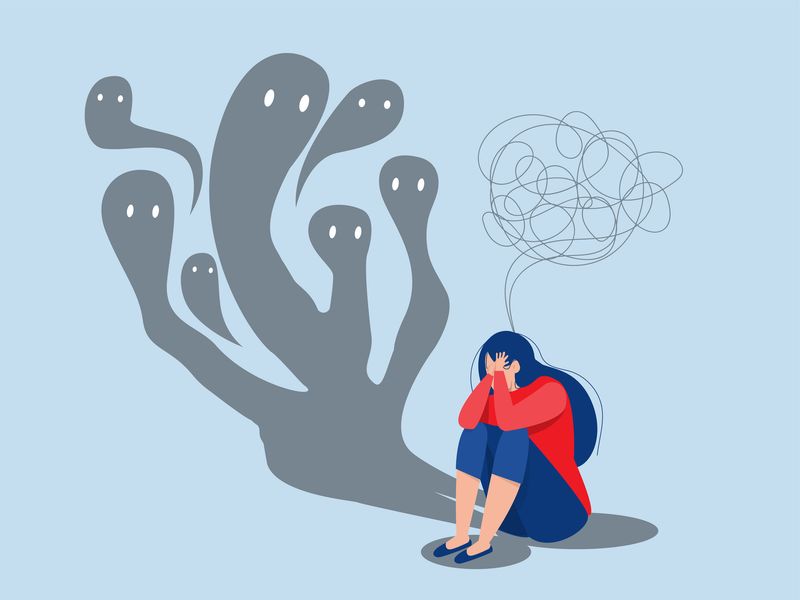19 Toxic Types of People That Are Not Worth Keeping in Touch With
As you grow, not everyone is meant to come along for the ride—and that’s okay. Some connections nourish your soul, while others quietly drain your energy and confidence. Knowing when to walk away isn’t about bitterness; it’s about self-respect.
Let’s shine a light on 19 types of people who simply aren’t worth keeping in touch with. From chronic drama-makers to those who only show up when they need something, it’s time to recognize who truly adds value to your life—and who’s been taking more than they give.
Ready to clear some space for genuine, uplifting connections? Let’s start protecting your peace like the priceless treasure it is.
1. The One Who Only Calls When They Need Something

At first, it feels good to be needed. You’re happy to help. But over time, you start to notice—they never call just to check on you. They call when they need a favor, emotional support, money, or a last-minute rescue. If you’re only valued for what you can give, not who you are, that’s not a relationship—it’s a transaction.
True friends care about your well-being, not just what you can do for them. Keeping in touch with someone who views you as a convenience leaves you drained and eventually resentful.
Relationships should be mutual, not one-sided obligations disguised as loyalty. It’s okay to outgrow connections that don’t value your heart. You deserve relationships that pour into you the way you pour into others.
2. The Chronic Guilt-Tripper

They know exactly which buttons to push. Instead of respecting your choices or feelings, they manipulate you with guilt: “After everything I’ve done for you…” or “I guess I just don’t matter to you anymore.” It’s subtle, but the emotional hangover is real. Guilt-tripping is control in disguise.
Over time, it chips away at your confidence and autonomy, making you feel like you owe them your energy, attention, or time. True love and friendship aren’t based on obligation—they’re based on freedom and mutual respect.
Someone who uses guilt to keep you close isn’t valuing your connection—they’re weaponizing your empathy. You don’t owe continued contact to people who make your love feel like a debt. Healthy relationships are built on choice, not coercion.
3. The One Who Can’t Be Happy for You

Pay close attention to how people react when good things happen to you. Genuine friends celebrate your wins like they’re their own. Toxic people, though? They get quiet. Distant. Maybe even critical or sarcastic. It’s heartbreaking when you realize someone resents your joy instead of amplifying it.
If every success feels like it creates tension instead of happiness, it’s a huge red flag. A person who subtly roots against you will drain your spirit. Over time, you’ll find yourself downplaying your achievements just to avoid making them uncomfortable—and that’s not love. It’s survival.
The right people don’t just tolerate your happiness; they help build it. Choose friends and partners who clap loudly when you win—because your light doesn’t threaten them. It inspires them.
4. The Drama Magnet

Their life is always a mess—and somehow, you’re always getting pulled into it. It’s never their fault, and there’s always a crisis. At first, being their confidante feels meaningful, even exciting. But soon, you realize: their chaos is constant. It’s not bad luck—it’s a lifestyle.
Drama magnets thrive on adrenaline, sympathy, and attention. They’re addicted to the highs and lows and often create problems just to avoid facing their own issues. Staying by someone like this means living in a state of emotional emergency.
It wears down your nervous system and distracts you from your own peace. Healthy relationships are steady, not dramatic. If someone’s chaos always becomes your burden, it’s time to love them from a distance—or not at all.
5. The Secret Competitor

Healthy friendships and partnerships are based on support, not competition. Secret competitors treat your wins like personal losses. They’re not inspired by your growth—they’re intimidated by it. Instead of celebrating you, they quietly compare themselves and look for ways to “one-up” you or minimize your achievements.
Over time, this toxic dynamic makes you second-guess your success or feel guilty for simply shining. Being close to a secret competitor means constantly monitoring your happiness to avoid making them feel small. That’s not your job.
Real friends root for each other. They know that one person’s success doesn’t diminish another’s worth. If someone feels like a rival instead of a teammate, it’s a clear sign to distance yourself and invest your energy where mutual support thrives.
6. The Chronic Boundary Crosser

Setting boundaries isn’t about shutting people out—it’s about protecting your peace. But some people treat your boundaries like suggestions, not necessities. They guilt you for saying no, show up uninvited, demand time you don’t have, or make you feel bad for simply needing space.
Chronic boundary crossers thrive on access, not respect. Over time, they teach you that your needs are “too much” and that love must be earned by being endlessly available. But real love respects limits. If you have to defend, explain, or fight for your own basic self-respect, that’s not a relationship—it’s a battleground.
Keeping in touch with someone who repeatedly ignores your boundaries teaches them (and yourself) that your peace is negotiable. It’s not. Your energy, time, and emotional space are precious—and they deserve to be treated as such.
7. The One Who Lies Casually

Trust is built in tiny moments—telling the truth even when it’s inconvenient. Casual lying (even about small things) cracks that foundation wide open. A person who lies easily about minor details often has no problem lying about bigger things later. It’s not the magnitude of the lie—it’s the mindset: that truth is optional.
Being around someone who manipulates reality will leave you feeling disoriented, doubting your intuition, and questioning your own memory. That’s how gaslighting starts, even if unintentionally. You deserve relationships grounded in honesty, even when the truth is uncomfortable.
Lies—big or small—create invisible walls between people. Trust is too precious to gamble on someone who bends reality for convenience. Protect your clarity by surrounding yourself with those who value transparency.
8. The Energy Vampire

You know the feeling: you walk into the interaction feeling fine—and leave feeling drained, irritated, or anxious. Energy vampires aren’t always obvious. Some are charming, funny, even magnetic. But they take more than they give.
They dominate conversations, dump their emotions on you without asking, or pull you into constant emotional emergencies. Over time, your body starts to dread interactions with them—even before your brain catches up.
A person who leaves you energetically exhausted trains you to betray your own emotional needs. Trust the way you feel after spending time with people. It’s one of the most accurate measures of whether a relationship is nourishing—or toxic. You’re not selfish for protecting your peace. You’re wise.
9. The One Who Never Grows

Everyone struggles. Everyone makes mistakes. But if someone keeps repeating the same toxic patterns—without reflection, apology, or effort to improve—you’re witnessing a refusal to grow. You cannot outlove, outlast, or outwork someone’s decision to stay stuck.
Relationships require evolution: emotionally, mentally, spiritually. Without growth, resentment festers, connection crumbles, and conversations feel circular. Someone who refuses to evolve forces you to shrink yourself down just to maintain the relationship.
Eventually, you’ll either stunt your own growth or leave them behind. Growth is uncomfortable—but it’s necessary. Surround yourself with people who embrace change, accountability, and emotional maturity. You deserve to keep company with those walking forward—not spinning in the same old cycles.
10. The Fairweather Friend

When things are good, they’re right beside you—laughing, celebrating, making memories. But when life gets heavy? They’re nowhere to be found. Fairweather friends don’t show up for heartbreak, hard conversations, or messy realities.
They disappear when your life gets “inconvenient” or when being around you might require emotional energy. True friendship shows up in both the light and the dark. If someone can’t stand in the storm with you, they don’t deserve to dance in the sunshine, either.
People who only want the polished version of you force you to hide your struggles—and over time, it can make you feel even more alone. Real love, real loyalty, real connection stay when things fall apart. Anything less isn’t worth keeping.
11. The Constant Critic

Feedback can be loving. But constant criticism? It’s corrosive. A constant critic finds fault in everything: your choices, your dreams, your appearance, your emotions. Nothing you do is quite “good enough”—and you’re often left questioning your worth. Constructive advice lifts you up.
Chronic criticism tears you down under the disguise of “just being honest.” If someone’s words consistently make you smaller, not stronger, that’s not love—it’s control. Over time, exposure to chronic criticism rewires your self-esteem, making you second-guess your instincts and mute your own voice.
Life with someone who constantly belittles you is emotional self-harm. Protect yourself by surrounding yourself with people who build you up, even when offering feedback. You deserve to feel safe in your relationships—not scrutinized.
12. The Passive-Aggressive Communicator

Passive-aggressive behavior can seem small: sarcasm, backhanded compliments, sighs, “accidental” forgetfulness. But don’t be fooled—it’s a form of emotional manipulation. Instead of addressing issues directly, they lash out sideways, leaving you confused, hurt, and questioning if you’re overreacting.
It’s a toxic cycle: tension rises, but nothing ever gets named clearly enough to resolve it. Healthy relationships require clear, honest, respectful communication. Passive-aggression rots connection from the inside out.
Staying close to someone who communicates this way keeps you locked in a pattern of guessing games, tension, and emotional exhaustion. You deserve relationships where issues can be discussed openly, without sarcasm or emotional sabotage. Choose clarity over cleverness every time.
13. The Emotional Blackmailer

“If you loved me, you would…” Emotional blackmail weaponizes love, guilt, or fear to manipulate your choices. It’s not about building connection—it’s about control. People who use emotional blackmail create a dynamic where your compliance is proof of your love.
Over time, you lose autonomy over your own decisions, driven by fear of hurting them or “letting them down.” Keeping in touch with someone who conditions love this way distorts your sense of healthy connection. Real love honors choice, freedom, and individuality—not guilt trips.
You’re allowed to love people and still say no. You’re allowed to prioritize your well-being without having to prove your loyalty through self-betrayal.
14. The Person Who Refuses to Apologize

Everyone messes up. But if someone can’t (or won’t) apologize sincerely, they’re telling you they value their pride more than your relationship. Apologies aren’t just about saying “I’m sorry”—they’re about owning harm and taking responsibility for repair.
A person who refuses to apologize will twist events, blame you, minimize your pain, or pretend nothing happened at all. Over time, this erodes trust and intimacy, leaving you feeling unseen, invalidated, and disposable.
Remaining close with someone who can’t apologize locks you into a cycle where your hurt never gets acknowledged—and healing never happens. Accountability is a non-negotiable in healthy relationships. Without it, the relationship becomes a one-way street leading straight to resentment.
15. The Perpetual Victim

Life is unfair sometimes. But perpetual victims live in a constant state of helplessness, blaming everyone else for their problems. They resist change, sabotage opportunities, and refuse to take ownership of their lives.
Being close to someone like this feels like walking through emotional quicksand—you’re always being pulled into their narratives, their emergencies, their helplessness. Being in touch with someone who refuses personal responsibility means constantly rescuing them, at the expense of your own growth.
Empathy is beautiful, but enabling someone’s refusal to evolve is not kindness—it’s self-neglect. You’re allowed to care about people without carrying them. Healing is a personal journey. You can’t take it for them.
16. The Ghost Who Tries to Reappear

They left without explanation. They ignored your calls, your hurt, your closure. Now, suddenly, they’re back—acting like nothing happened. Ghosters don’t just disappear from texts—they abandon emotional responsibility.
When someone ghosts you and then casually resurfaces, they’re signaling that your feelings are disposable. Keeping in touch with a ghoster invites them to treat you as an option, not a priority. You deserve people who value consistency, not convenience.
Forgiveness is healing—but it doesn’t mean reopening doors to people who showed you they can disappear when it matters most. Protect your peace. Let them stay in the past they chose.
17. The Person Who Makes You Doubt Your Worth

This one is the most dangerous. It’s not always loud. Sometimes it’s a slow erosion—subtle jokes, casual criticisms, constant second-guessing. Being around someone who consistently undermines your confidence will warp your sense of what you deserve.
If someone makes you feel like you’re too emotional, too difficult, too much—or not enough—they are not your people. Staying close with someone who dims your light betrays your highest self.
You deserve relationships where your worth isn’t questioned, your dreams aren’t minimized, and your heart isn’t treated like an inconvenience. Never settle for a connection that costs you your self-respect.
18. The Chronic Naysayer

Always ready with a pessimistic outlook, the Chronic Naysayer dims the light on your dreams and ambitions. This person thrives on negativity, often dismissing new ideas without consideration. Even in the face of success, they find flaws and highlight potential failures, casting doubt and uncertainty. Surrounding yourself with such skepticism can hinder your motivation and self-belief.
Do you have a friend who never sees the silver lining? Their constant negativity can become contagious, affecting your outlook on life. It’s crucial to maintain a circle that supports and uplifts, rather than one that drags you down.
Consider the impact of relentless pessimism. It can stifle creativity and innovation, leaving you stuck in a cycle of doubt. Limit interactions with those who perpetually see the glass half empty.
19. The Overbearing Advisor

The Overbearing Advisor always knows best, or so they think. Unsolicited advice flows freely from their lips, even when it’s neither needed nor wanted. They seek to control your decisions, often speaking over your thoughts and feelings.
Imagine trying to share a personal story, but being constantly interrupted by unwelcome suggestions. This behavior can undermine your autonomy and confidence.
While guidance can be helpful, it should be given respectfully and thoughtfully. If you find yourself overwhelmed by someone else’s opinions, it may be time to reevaluate the influence they have on your life.







